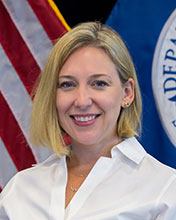
Preliminary findings of a mandatory review of federal computer networks for the presence of a Russian-made anti-virus software that may actually pose an information security risk show that the products are on computer systems of about 15 percent of civilian agencies, a Department of Homeland Security (DHS) official disclosed on Tuesday.So far, 94 percent of agencies required to report on the presence of Kaspersky Lab’s products on their information systems have complied with a Binding Operational Directive (BOD) issued by…

 By
By 











